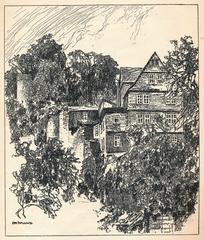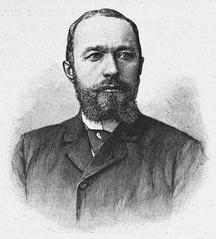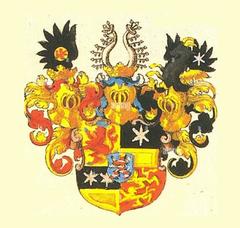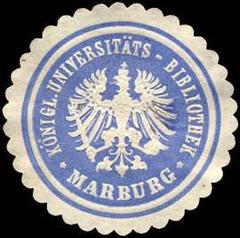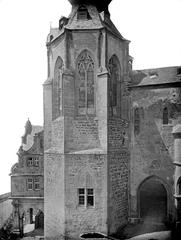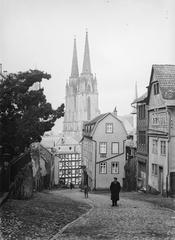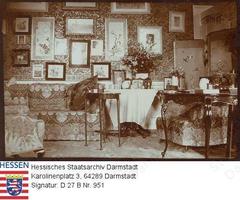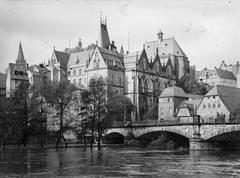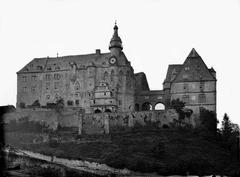
Hessian Scholarship Institution in Marburg: Visiting Hours, Tickets, and Historical Significance
Date: 04/07/2025
Introduction
Situated in the historic city of Marburg, Germany, the Hessian Scholarship Institution is a cornerstone of academic excellence and social responsibility, deeply connected to Philipps-Universität Marburg—one of Europe’s oldest Protestant universities, founded in 1527. Rather than a single building, the “Hessian Scholarship Institution” refers to a comprehensive network of scholarship programs and academic support mechanisms that have evolved over centuries to promote education, inclusivity, and social mobility within Hesse and beyond. Originating from the vision of Landgrave Philip I of Hesse during the Protestant Reformation, the institution has become central to Marburg’s identity as a hub of scholarship and humanitarian support (Wikipedia: Marburg; Global Scholarships: Philipps University of Marburg).
Today, the Hessian Scholarship Institution, especially through initiatives such as the HessenFonds, exemplifies Hesse’s ongoing support for academic freedom, internationalization, and humanitarian aid, particularly for displaced scholars and refugees (wissenschaft.hessen.de). This guide offers a detailed overview of the institution’s historical roots, practical visitor information—including visiting hours and accessibility—scholarship opportunities, and tips for engaging with Marburg’s vibrant academic and cultural scene (Philipps-Universität Marburg; Marburg Tourism).
Historical Background
Origins and Foundation
The Hessian Scholarship Institution’s origins are intertwined with the founding of Philipps-Universität Marburg in 1527 by Landgrave Philip I of Hesse. As the world’s first Protestant university, Marburg was established amidst the intellectual and spiritual upheaval of the Reformation, aiming to provide a center for Protestant learning and scholarship (Wikipedia: Marburg). The institution’s early scholarship support was funded by the landgraves of Hesse, reflecting a strong regional commitment to education and intellectual advancement (Global Scholarships: Philipps University of Marburg).
Marburg and the Reformation
Marburg’s role as a center of learning is rooted in its strategic medieval location and its significance during the Reformation. The city’s reputation was further enhanced by St. Elizabeth of Hungary’s charitable works in the 13th century and the Marburg Colloquy of 1529—a pivotal theological debate held in Marburg Castle between Martin Luther, Huldrych Zwingli, and others (German History Docs: Marburg Colloquy; Britannica: Marburg). Although doctrinal unity was not achieved, the colloquy cemented Marburg’s importance as a site of religious and intellectual exchange.
Evolution of Scholarship Support
Despite periods of war, political upheaval, and changing borders, Marburg’s tradition of scholarship support has endured. The 19th-century annexation by Prussia revitalized the university, attracting distinguished scholars and expanding funding opportunities. In the 20th and 21st centuries, scholarship programs such as the HessenFonds have supported displaced students and researchers, reflecting a commitment to inclusivity and academic freedom (wissenschaft.hessen.de).
Visiting the Hessian Scholarship Institution and Philipps University of Marburg
Location and Access
- Main Administrative Office: Biegenstraße 10, 35037 Marburg
- Contact: Philipps-Universität Marburg International Office
- Hours: Monday to Friday, 9:00 AM – 5:00 PM (appointments recommended)
Marburg is easily accessible by direct train from Frankfurt (approx. 1–1.5 hours) and Kassel. The university and scholarship offices are a short walk from Marburg Hauptbahnhof and the city center.
Tickets and Admission
- Campus and Offices: No tickets or admission fees are required. The institution is not a museum but an academic office network.
- Guided Tours: University and local tourism offices offer guided historical tours (typically €5–15), including university landmarks and Marburg Castle (Marburg Tourism).
- Special Events: Lectures, ceremonies, and cultural events may require advance registration via the university website.
Accessibility
Philipps-Universität Marburg and associated buildings offer ramps, elevators, and accessible restrooms. For specific needs, contact the International Office in advance. The city also provides Braille maps and adapted tours for visually impaired visitors (Marburg for the Visually Impaired).
Amenities and Practical Tips
- Accommodation: Options include university guesthouses, hotels, and private apartments (Accommodation Service).
- Dining: On-campus Mensa and cafés offer affordable meals; the city center features a range of restaurants and bakeries.
- Wi-Fi: Available campus-wide for visitors (credentials at reception or via your host department).
- Safety: Marburg is a safe city; emergency contacts are displayed at building entrances.
Scholarship Opportunities
Types of Scholarships
- HessenFonds: Supports students and researchers at risk, including refugees and those threatened by persecution (wissenschaft.hessen.de).
- Deutschlandstipendium: €300 monthly for outstanding students, jointly funded by the government and private sponsors.
- Other Programs: Foundations such as the Friedrich Naumann Foundation and Evangelisches Studienwerk provide additional support.
- International Exchange: Scholarships through DAAD, Erasmus+, and other partnerships.
Application Process
Applications are submitted via the university’s scholarship portal or specific program websites. The HessenFonds internal deadline is usually July 31 for the upcoming academic year. Direct applications to the ministry are not accepted; apply through your host institution.
Support Services
Recipients benefit from financial assistance, mentoring, integration help, health insurance, and access to academic and cultural events (Philipps-Universität Marburg Official Site).
Cultural and Societal Impact
Integration and Academic Freedom
The Hessian Scholarship Institution advances academic freedom and social responsibility by supporting scholars and students displaced by war or crisis. Programs like the HessenFonds provide not just funding, but also mentoring, family allowances, health coverage, and networking opportunities. Regular public lectures, events, and programs such as the Marburg Dialogues foster exchange and integration (uni-marburg.de).
Visitor Experience
Welcome Center and Information
The university’s Welcome Center assists international scholars and visitors (Welcome Center). Information sessions, workshops, and public lectures are held throughout the year—check the events calendar for updates.
Guided Tours and Photographic Spots
While there are no dedicated tours of the scholarship offices, campus tours highlight historic sites like the Alte Universität, Marburg Castle, and St. Elizabeth’s Church (Travel Guide to Marburg). The Oberstadt (old town) and the Lahn River also offer scenic photography opportunities.
Frequently Asked Questions (FAQ)
Q: Is there a physical Hessian Scholarship Institution building?
A: No, it is a network of scholarships and support offices within the university.
Q: What are the visiting hours?
A: Monday–Friday, 9:00 AM–5:00 PM. Appointments are strongly recommended.
Q: Are tickets required to visit?
A: No tickets are needed for administrative offices. Registration may be required for events or tours.
Q: How do I apply for scholarships?
A: Submit your application via the university’s international office or scholarship portal. Deadlines vary by program.
Q: Is the university accessible for visitors with disabilities?
A: Yes, with ramps, elevators, and accessible restrooms available throughout campus.
Q: Are English-language services available?
A: Yes, most staff in international and scholarship offices speak English; materials are offered in both German and English.
Conclusion
The Hessian Scholarship Institution in Marburg stands as a living testament to academic tradition, humanitarian commitment, and cultural heritage within one of Germany’s most celebrated university towns. From its roots in the Protestant Reformation to its modern role supporting scholars from around the world, the institution offers robust support, inclusive events, and a welcoming environment for all. Whether you are a prospective scholar or a visitor, you can engage with a network that continues to shape academic excellence and social mobility.
Stay Updated
For the latest information on scholarships, visiting hours, and events, consult the following official sources or download the Audiala app:
- Philipps-Universität Marburg – International Information
- HessenFonds Scholarships – Application Details
- Philipps University Scholarship Page
- Hessian Ministry of Science and Research, Arts and Culture
- Marburg City Tourism
- German History Docs: Marburg Colloquy
- Britannica: Marburg
Internal Links:
Images to consider for inclusion:
- Philipps-Universität Marburg’s historic campus (alt text: “Philipps-Universität Marburg campus – location of Hessian Scholarship Institution”)
- Map of Marburg highlighting university and scholarship offices (alt text: “Map of Marburg highlighting Hessian Scholarship Institution location”)
- Photos from scholarship award ceremonies or Marburg Dialogues (alt text: “Scholarship Institution events showcasing academic exchange”)
For further guidance, public event schedules, and the latest news, follow university social media channels and consult the Audiala app.

